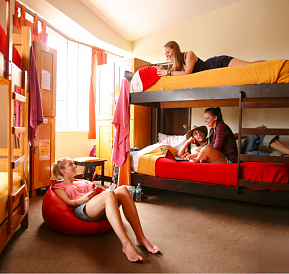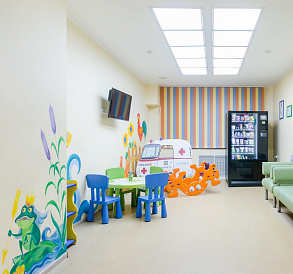12 best universities in Germany
Studying in Germany is attractive to citizens of other states for many reasons. This is the highest level of education, and the minimum cost, and opportunities that open after graduation. Universities in this country are relatively small - barely more than a hundred, and almost all educational institutions provide good training of specialists. However, the best are among the best. We have chosen 12 universities, which are superior to other educational institutions in a number of indicators. These are not only high places in the ratings, including international ones, but additional options that distinguish the university among the rest.
Ranking of the best universities in Germany
| Nomination | a place | university name | cost of undergraduate a year |
| Ranking of the best universities in Germany | 1 | Munich Technical University (TUM) | 128 $ |
| 2 | Karlsruhe Institute of Technology | 3 200 $ | |
| 3 | Rhine-Westphalian Technical University Aachen | 540 $ | |
| 4 | University of Mannheim | 1 000 $ | |
| 5 | Berlinsky University named after Humboldt (HU) | 663 $ | |
| 6 | Free University of Berlina (FU) | 661 $ | |
| 7 | Munich University Ludwig-Maximilian | 241 $ | |
| 8 | University of Cologne | 540 $ | |
| 9 | Technical University of Dresden | 258 $ | |
| 10 | Frankfurt Johann Wolfgang Goethe University | 554 $ | |
| 11 | Technical University of Berlin | 663 $ | |
| 12 | University of Westphalia named after Kaiser Wilhelm II in Münster | 575 $ |
Munich Technical University (TUM)
Rating: 4.9

Munich Technological University (TUM) is one of the most prestigious institutions of higher education in Germany. This university is ranked high in the rankings among German technical universities and is consistently recognized internationally.
Founded in 1868, the Technical University of Munich has earned an excellent reputation both in academia and among students. The latter is confirmed by numerous positive reviews on the Meine uni website, where students evaluate universities by various parameters. According to students, this is one of the best universities in Germany in terms of teaching. However, this is not surprising, since the Munich Technical University focuses not only on training in technical specialties, but also on developing business thinking. As a result, graduates become not only in-demand technical specialists, but also successful businessmen who know how to best monetize the knowledge gained in TUM.
Virtues
- High quality education (among the graduates are six Nobel laureates, the founder of Siemens, the chairman of the board of BMW and other famous personalities in the world of science and business).
- Large selection of courses (132 programs, of which 29 are taught in English).
- Low tuition costs (no tuition fees, and administrative fees do not exceed 300 Euros per semester).
- Access to scholarships for foreigners on some programs.
disadvantages
- Upon admission to the magistracy, it is impossible to change the direction - a bachelor's degree is required exclusively for the chosen specialty.
- A limited number of beds in the hostels.
Karlsruhe Institute of Technology
Rating: 4.8
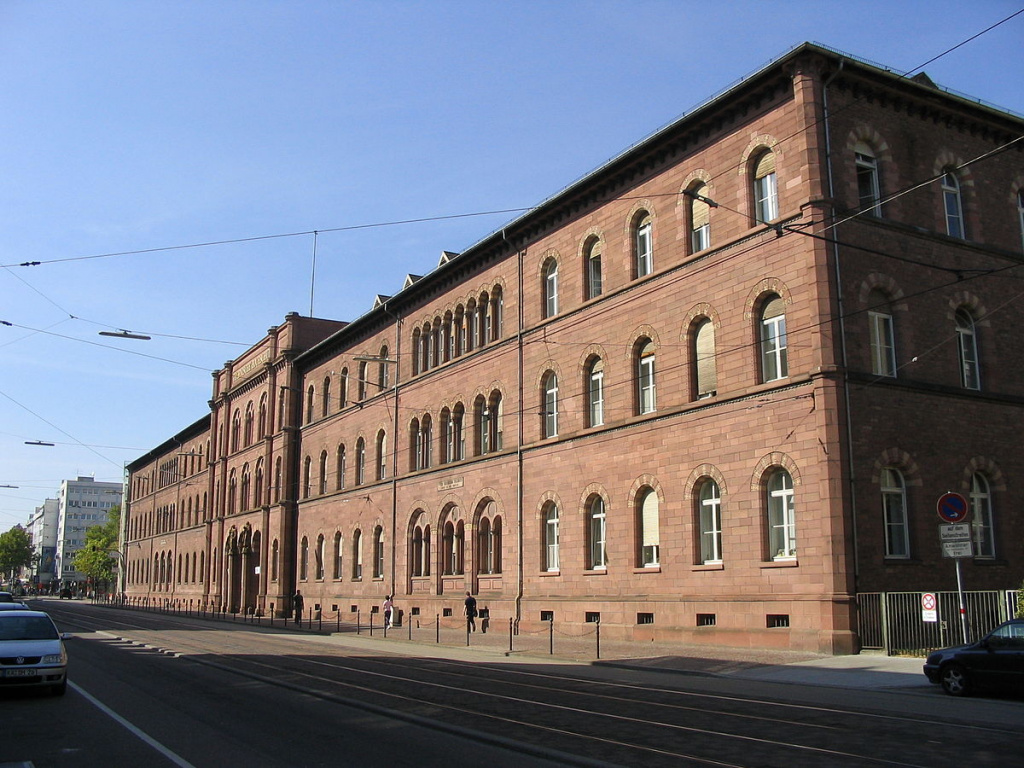
This university is one of the oldest technical schools in Europe. He is second only to the polytechnic universities of Prague, Paris, and Vienna, as an age-old palm. He began his activities in 1825. Among the outstanding graduates is the auto inventor Karl Benz, Heinrich Hertz, who discovered electromagnetic waves, Edward Teller, who created the hydrogen bomb in the United States.
Now Karlsruhe Institute of Technology is an association of university and research center. More than 25 thousand students study at 11 faculties, including about 15% from other countries. Among the teaching staff are also many representatives of other states.
The university is listed in TU 9 (a list of nine best technical educational institutions in Germany) and is included in the list of the top 100 European universities.
Virtues
- The highest level of training in a number of disciplines (engineering, physics, chemistry, computer science, etc.).
- Promotion of student projects.
- Orientation to practical activities and the possibility of obtaining skills on the basis of various enterprises and organizations.
- Active participation in international exchange programs.
- There is a bachelor program in English.
disadvantages
- Paid tuition for foreign students (about 3000 Euro / year plus administrative fees).
- Testing for admission to some specialties.
Rhine-Westphalian Technical University Aachen
Rating: 4.8
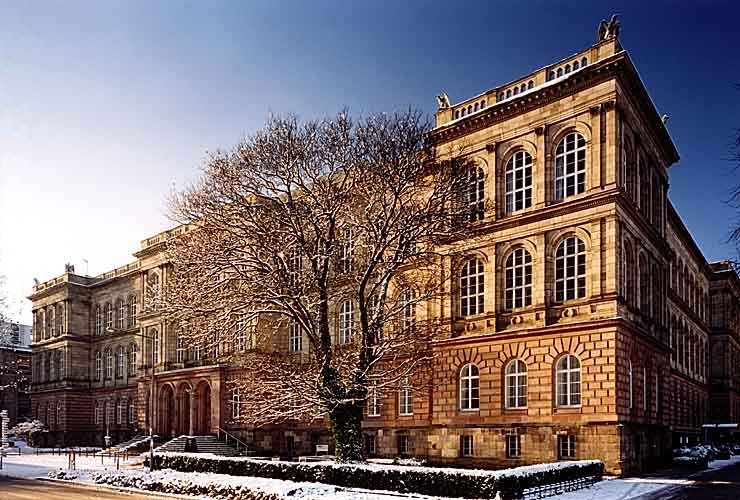
The Rhine-Westphalian Technical University of Aachen is another representative of the prestigious nine TU9. About 10 thousand students study at 10 faculties of this university. Approximately 20% of them are foreigners from various parts of the world - the student geography of RWTH Aachen University covers 130 countries.
The list of famous students includes not only Nobel laureates and outstanding entrepreneurs, but also high-ranking politicians, such as the former president of Indonesia, the prime minister of Turkey, the foreign minister of Afghanistan.
Although the university has humanitarian areas, but their promotion is not a priority. First of all, attention is focused on the most popular industrial specialties, electrical engineering, information technologies.
Virtues
- Free tuition for international students (only an administrative fee of about 260 Euro / semester is paid).
- The possibility of acquiring practical skills due to the close relationship of the university with the enterprises.
- Huge selection of specialties (almost 100).
- Scholarship programs (university and from various funds.
disadvantages
- The complex structure of the school, including many units.
- No undergraduate programs in English. Also limited the number of English-language programs in the magistracy.
University of Mannheim
Rating: 4.8

Founded in 1967, the University of Mannheim in a fairly short period has managed to become one of the best educational institutions in the economic field not only in Germany, but also in Europe. Although the university has a rather extensive list of specialties (history, psychology, politics, philosophy, mathematics, philology, etc.), it is in the field of economics that the university has become a leader and competes confidently with the University of Bonn, another leader in the field of economic education.
Educational institution is popular among foreign students. The number of students from other countries varies from 15% to 18%. Interest in this university is caused not only by the high level of teaching, but also by triple accreditation. This makes it possible to get a double diploma, while studying at partner universities (Bocconi University, Queen`s University, University of South Carolina).
Virtues
- High level of education - the university is included in the TOP 50 best universities in Europe.
- Providing a large number of scholarships (state, from funds, for orphans, etc.)
- There are many English-language master programs.
- The university and campus are considered the most beautiful in Germany in terms of architecture. Most university buildings are located in the Palace of Mannheim, built in 1760.
- There are many international programs, and students have the opportunity to go to study in other countries, in parallel to receive a diploma from another university.
- Among undergraduate programs, modern English linguistics and literary studies can be studied in English.
disadvantages
- High competition for most specialties.
- Education for foreign students is paid (about 3000 Euro / year).
Berlinsky University named after Humboldt (HU)
Rating: 4.7

Berlin University named after Humboldt (HU) is one of the most famous educational institutions in Germany, known far beyond the borders of the country. More than 200 years of history, the university has experienced quite a few events, including tragic ones, such as the burning of the library during Hitler’s reign. But the glorious pages are much more. 29 professors at different times became Nobel laureates. Graduates include such prominent personalities as Einstein, Heine, Bismarck, Feuerbach, Koch, Marx, Mendelssohn.
Now the university has more than 30 thousand students. In the structure of the institution - the world famous Charite, which includes a medical faculty, a research center and a clinic. With a relatively small number of faculties, you can get a profession in 190 specialties.
Virtues
- The university is included in the top five universities in Germany (4th) and ranks 16th among the best universities in Europe. Also enter the TOP 100 best universities in the world.
- Internship opportunities at many partner universities, including universities in Toronto, Queensland, Princeton, Waseda.
- Free training (you only need to pay an administrative fee).
- A special guardianship program has been developed for foreign students.
- The international orientation of the institution.
- Double degree programs.
disadvantages
- Grants and scholarship programs are designed exclusively for graduate, doctoral and post-doctoral students.
- No bachelor programs in English.
Free University of Berlina (FU)
Rating: 4.7
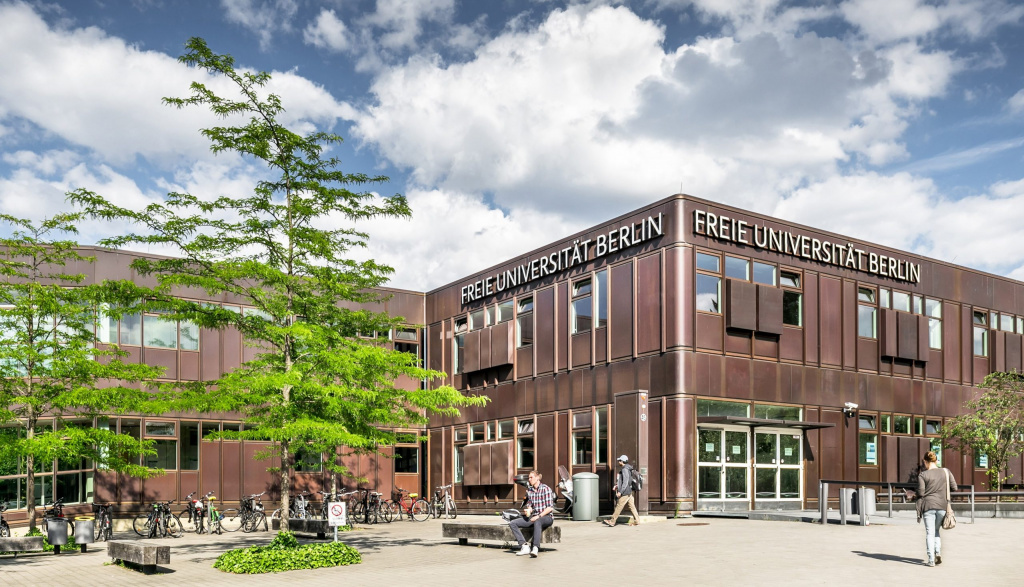
This is the largest university in the capital of Germany, which is even ahead of the Humboldt University in terms of the number of students. Founded only in the middle of the XX century (1948), FU by this time became the largest center of natural science and the humanities not only in Germany, but also in Europe, which is confirmed by high places in various ratings. Among the famous graduates are five Nobel laureates, writers, philosophers, and political figures.
From the moment of its foundation, the university declared the principles of freedom, setting itself against the unfree communist world and educational institutions that were controlled by the communist government. These principles of freedom are reflected in the management model, in which the student body receives broad powers.
The Free University has become the main unifying element of Dalem, a Berlin district with numerous research institutes, which is called "German Oxford."
Virtues
- The university has a high rating (5th place in Germany and 23rd in the European top).
- International atmosphere - up to 20% of students come from other countries.
- Mentoring programs for foreign students.
- Free training (only administrative fees are paid).
- The ability to combine academic disciplines.
- Large selection of specialties (more than 170), among which are quite rare - Sinology, Judaism, Byzantinistics, etc.
- Extensive international connections.
disadvantages
- The complex structure of the university.
- According to students, not enough practical training - most of the courses are theory.
- Only one undergraduate program in English, and English-language masters programs mainly in the medical field and in the field of international specialization.
- Upon admission to the master's specialty put forward additional requirements for language proficiency in most specialties.
Munich University Ludwig-Maximilian
Rating: 4.7
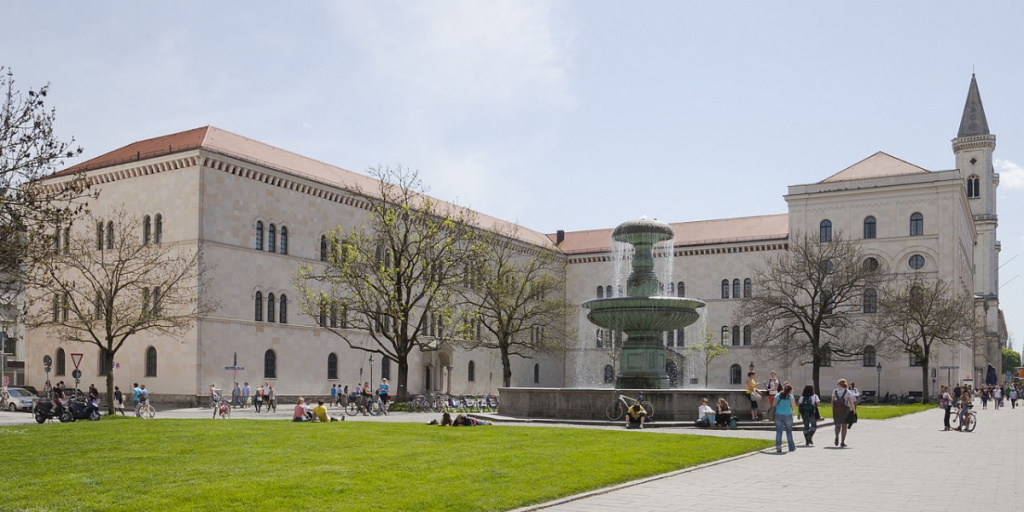
The oldest Bavarian university was founded in 1472. As conceived by the founders, the university was to become an elite educational institution for the nobility. The institution was named in honor of the founder - Duke Ludwig IX, as well as King Maximilian I of Bavaria, who freed the university from church jurisdiction and made it secular. But “secularism” did not prevent elitism at all. Throughout history, this university was considered one of the most powerful and privileged educational institutions in Germany. Kings and presidents, famous philosophers and writers, economists and politicians were trained here.
Today LMU is one of the largest training centers not only in Germany, but also in the whole of Europe. More than 50 thousand students study at 20 faculties. According to the results of the research of the magazine Spiegel, a German professor considers the University of Ludwig-Maximilians Munich the best educational institution for the training of physicians, biologists, psychologists and historians.
Virtues
- The university occupies the highest places in the rankings: №1 in the ranking of universities in Germany, №9 in the European ranking, and 30th place in the world.
- Excellent scholarship programs, including scholarships from the them. Humboldt (by their number, the university ranks first).
- Large selection of specialties (more than 150), with the possibility of their combinations.
- Free education for all, including foreign students (only the administration fee of 128 Euro / semester is paid).
- There are more than 700 professors in the teaching staff.
- Close international relations with all major foreign universities, including the CIS countries.
disadvantages
- Very high competition.
- Reception of foreign students is limited - no more than 10%.
University of Cologne
Rating: 4.7
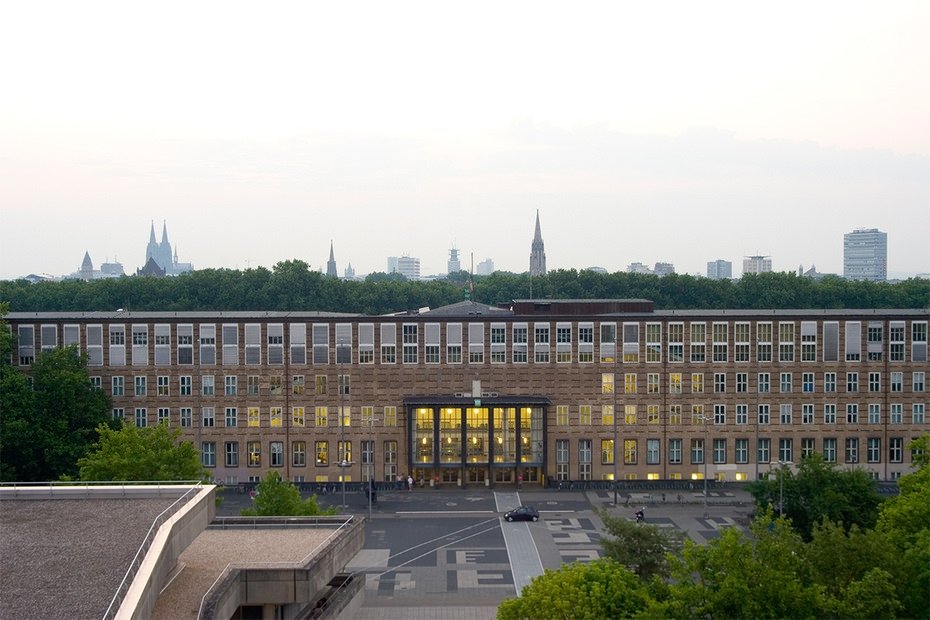
One of the oldest educational institutions in Europe, the University of Cologne was founded in 1388. Soon the number of students exceeded one thousand, and the university became one of the largest in Europe. But after four centuries a black stripe arrived: the school was closed because of the unwillingness to submit to the French, who had captured Cologne. The revival, despite repeated attempts, occurred only 120 years later.
Now it is the third largest university in Germany, which is attended by almost 50 thousand students. There are only 6 faculties here, but each of them is a special pride of the university. And although the most powerful is the Faculty of Economics, which occupies high places in the German and European ratings, but other departments are not far behind, such as architectural, included in the world TOP-50. Also, the University of Cologne is the largest forge of teaching staff, not only in Germany but also in Europe
Virtues
- Free tuition (only administrative fees are paid - 263 Euro / semester).
- Support for young scientists, graduate students.
- Innovative programs.
- The possibility of obtaining a double diploma.
- Partnership agreements with many universities in other countries, international student exchange.
- Extensive list of specialties.
- Mentoring and assistance in adaptation.
disadvantages
- The lack of undergraduate programs in English.
- According to reviews, perhaps too many students in seminars.
Technical University of Dresden
Rating: 4.6
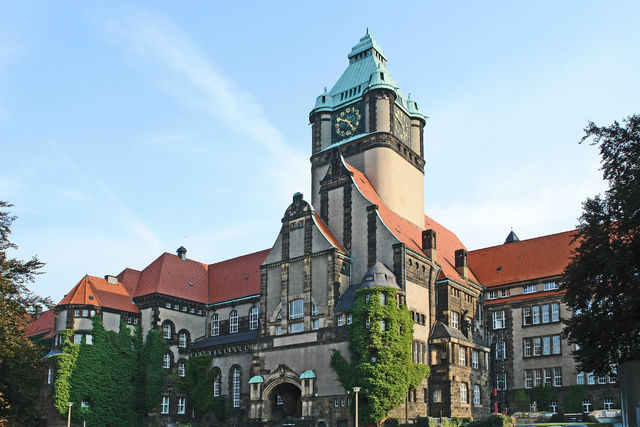
Technical University of Dresden - one of the most prestigious educational institutions in Germany. This largest polytechnic university, whose history dates back to two centuries, is included in TU9.
The university has 14 faculties. In addition to engineering and natural science disciplines, here study the social sciences and medicine and medicine.This is the only university in Germany where it is possible to study in absentia in the specialties “civil construction” and “mechanical engineering”.
Considerable attention is paid to student leisure. The university has a large sports center, which includes almost three hundred associations of various sports. On the territory there are two stadiums and many playgrounds. Also, all conditions have been created for the development of talents in the field of art (student theater, orchestra, choir, dance ensemble).
Virtues
- Education is free for all (only compulsory semester fee of 266 Euro is paid).
- Various scholarship programs (short-term, for students working on diplomas, etc.)
- International exchange programs.
- Cooperation with large enterprises, where students have the opportunity to undergo internships, and subsequently find employment.
- Large selection of specialties.
- In comparison with many other universities, a large number of places in the dormitories (10 thousand places in 30 dormitories).
disadvantages
- A small number of English-language programs that are offered only for graduate.
- A relatively low percentage of foreign students (up to 13%).
Frankfurt Johann Wolfgang Goethe University
Rating: 4.6
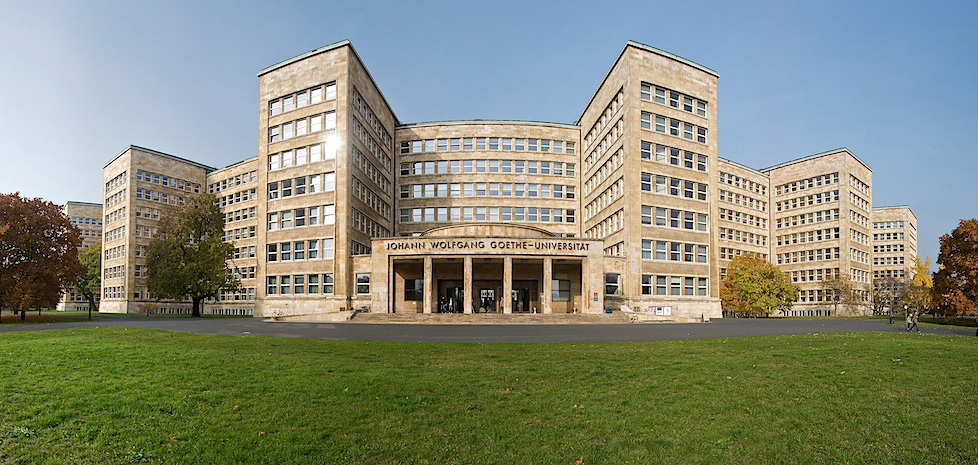
The official history of the Frankfurt University. Goethe has a little over a hundred years (year of foundation - 1914). But in fact, the university exists from the end of the XV century. At the beginning of the 20th century, the educational institution only received the state status of a university. But as in those times, and now, the university is a significant measure sponsored by non-governmental organizations and individuals, therefore, it is considered “popular”. A huge plus of this is academic freedom and the opportunity to independently choose, without coordination with the Ministry of Education, the number and topics of new research.
Today, this university is among the five largest and most powerful German universities, and in the top 150 European universities. 18 Nobel Prize Winners and 11 Leibnite Prize Winners are associated with this educational institution. More than 45 thousand students study at 16 faculties, of which 16% are foreign citizens.
Virtues
- Free tuition (you need to pay only the administration fee in the amount of 363 Euro / semester).
- International Summer School of Economics and Business Management.
- Close cooperation with private business.
- Scholarship programs and government grants for training.
- Innovative research in the field of medicine (areas of general medicine and pharmacology have the highest rating).
disadvantages
- The high cost of paid master's programs (for some specialties - up to 30 thousand Euro / year).
- The material base, according to the students, requires updating.
Technical University of Berlin
Rating: 4.5
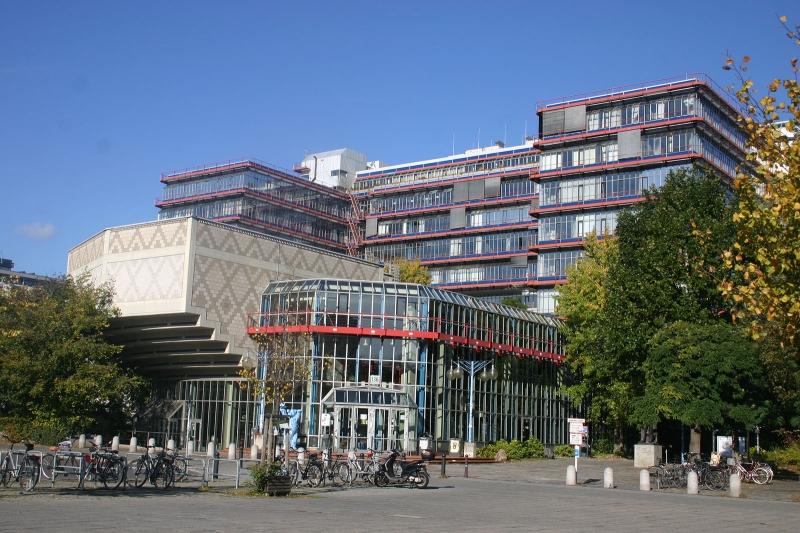
Another representative of TU 9 - Technical University of Berlin - is one of the leaders not only in Germany, but also in the world. This largest educational research institution has only 7 faculties. But behind this "minimalism" there is a huge number of educational programs, including in the humanities.
The university focuses on research (in the structure - 40 research institutes), and in practice. Close ties with enterprises allow students to undergo probation and quickly find work after completing their studies. According to statistics, most graduates find work already in the first year after graduation.
A special feature of the Technical University of Berlin is its environmental profile. A course on ecology and environmental issues is mandatory in almost all programs, and research is aimed at developing a green economy.
Virtues
- One of the most reputable universities not only in Germany, but in the whole of Europe.
- Many masters programs in English.
- Some engineering programs are unique.
- The university has a campus in Egypt, on the shores of the Red Sea.
- Students can get double degrees.
- Free tuition (only a semester fee of € 307 is required).
- A large number of foreign students (up to 25%).
- International orientation - an extensive student and teacher exchange network has been created.
- Active cooperation with many corporations and enterprises.
disadvantages
- The university has a complex structure.
- No undergraduate programs in English.
University of Westphalia named after Kaiser Wilhelm II in Münster
Rating: 4.5
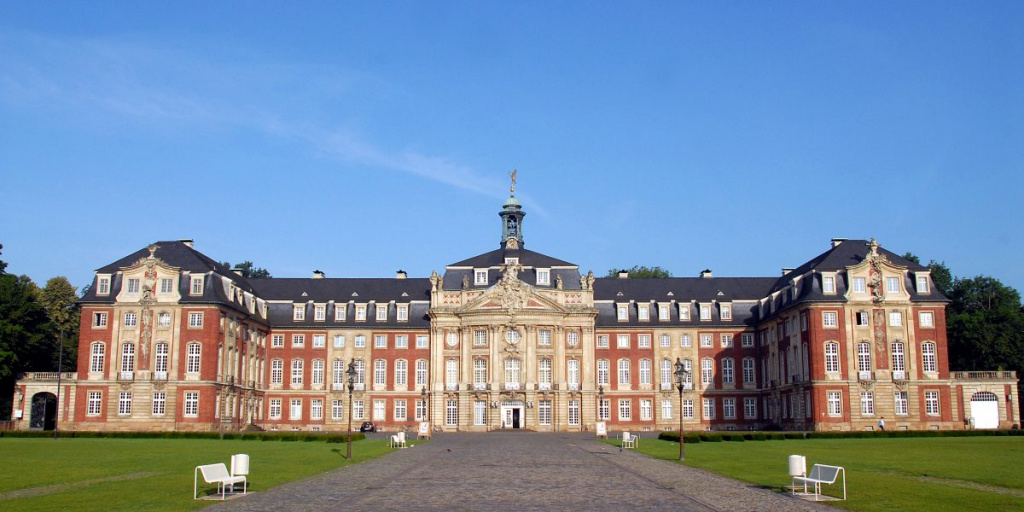
One of the oldest universities in Germany, the University of Westphalia in Münster is today one of the largest educational institutions in Germany. More than 40 thousand students study at 15 faculties. WWU Münster is among the leaders in the field of junior research workers. About 800 applicants receive a doctoral degree here every year.
The strongest faculties are economics and law, which are in the top five among German universities in terms of teaching. The chemistry department, which occupies the 46th position in the world ranking, is also popular with students. The branches of mathematics and physics occupy, respectively, the 101st and 151st positions of the “disciplinary” world ranking. There is also a branch of medicine with a very wide range of studies.
Virtues
- Active cooperation with universities in the UK, France, Canada, as well as partnership agreements with more than 400 educational institutions around the world.
- Highest scholarships for students and other scholarship programs.
- Free education (only the student fee is paid - 267 Euro).
- There are two undergraduate programs in English.
- Students are offered a choice of 130 specialties, including with a double degree.
- The university has several museums of its own, two theaters, a botanical garden.
disadvantages
- A small number of foreign students (about 6%).
- In comparison with other universities - a limited number of English-language master programs.
- Complex university structure, including many divisions.
Attention! This rating is subjective, is not advertising and does not serve as a guide to the purchase. Before buying, you should consult with a specialist.


